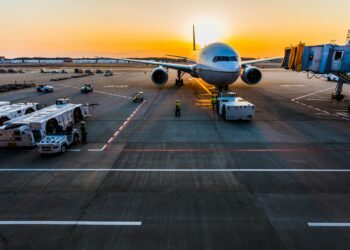A coalition of nations including France, Spain, Kenya, and Barbados announced plans on Monday to implement taxes on private jets and premium-class air travel, marking a significant step toward climate financing reform. The agreement, unveiled at the UN development summit in Seville, seeks to generate billions for sustainable development while targeting high-emission luxury travel.
The initiative (part of the newly launched “Sevilla Platform for Action,”) represents one of the first concrete measures under a global financing pact to address climate change. Spanish Prime Minister Pedro Sánchez emphasized the goal of creating “more progressive and harmonized tax systems” to bolster international solidarity. The plan has also gained support from Sierra Leone, Benin, Antigua and Barbuda, and Somalia, with technical backing from the European Commission and the Global Solidarity Levies Task Force.

Why Target Aviation? The Climate and Equity Rationale
With extreme weather events surging worldwide, traditional development aid has fallen short, prompting governments to explore innovative revenue streams. Aviation—a sector responsible for significant carbon emissions yet historically undertaxed—has emerged as a priority. According to the Task Force, levies on private jets and premium flights could unlock billions annually, alongside potential taxes on shipping, fossil fuels, cryptocurrencies, and ultra-high-net-worth individuals.
Meanwhile, the Kenyan President William Ruto stressed the need for political courage, stating, “We cannot keep talking about change without implementing it.” Environmental advocates like Greenpeace’s Rebecca Newsom praised the move as long overdue, urging policymakers to next confront oil and gas giants over their climate liabilities.
Possible Challenges and Next Steps
While the proposal has drawn broad support, its implementation faces hurdles, including industry resistance and the need for global coordination. Critics argue that without binding agreements, the taxes may remain unevenly applied. However, proponents see this as a critical test of whether wealthy nations and frequent flyers will finally contribute their “fair share” to climate mitigation.

















